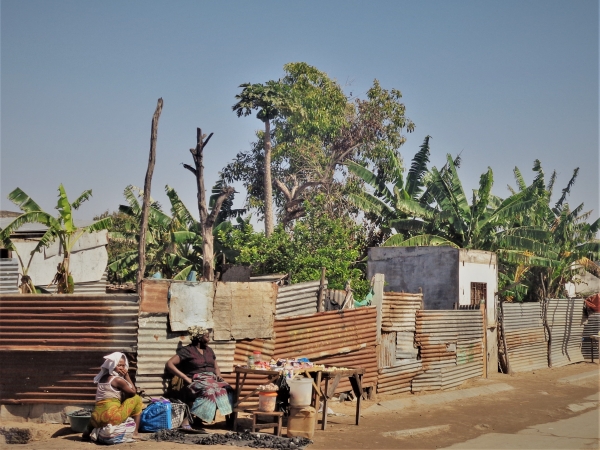Though most of the area of Cabo Delgado is under control by armed forces, minor attacks still occur in some places using unconventional methods such as employing improvised explosive devices. The main targets of these attacks are usually government infrastructures and staff. The Armed Conflict Location and Event Data Project claimed that due to limited access to livelihood and insecurity for business, food insecurity is likely to persist. The movement of Internally Displaced People (IDP) has not stopped but has significantly slowed down. Nangade and Ancuabe received the highest number of IDPs in October. In Cabo Delgado, IDPs, whose economic potential is constrained by limited access to livelihood activities, are either living with host families or in resettlement areas. On a positive note, the infection rate of COVID–19 has dropped in the country.
The report presents the details of activities performed by UNICEF and its supporting organizations in each response programme in October 2021.
Health
UNICEF carried out a measles immunization program in which it provided logistical and technical support. Through this programme, a total of 98.7 % of targeted children were vaccinated. Similarly, a refresher training programme for detection and management of COVID-19 cases among women and children was given to 22 community health workers in Cabo Delgado. Training on disability inclusion was also provided to 118 health service providers in the same region. Moreover, with cooperation from provincial and district health teams and Partner Doctors with Africa (CUAMM), UNICEF diagnosed and treated numerous malaria cases, provided vaccines, and gave parental consultation to pregnant women in many resettlement centres. UNICEF also conducted a campaign on the oral cholera vaccine (OCV) and supported the COVID – 19 vaccinations in Cabo Delgado.
Nutrition
Thousands of people in both IDPs and general people of Cabo Delgado and Manica province were treated for severe and moderate acute malnourishment along with the distribution of vitamin A supplements. UNICEF ran a pilot programme on the management of acute malnutrition at the community level where cooking demonstrations for improved diet diversity were carried out for the caregivers. Similarly, in Manica province, integrated mobile brigades provided deworming pills to thousands of children and offered 50 sessions on integrated feeding of infants and young, including Water, Sanitation and Hygiene (WASH) practices. Furthermore, to treat the cases of pellagra in Manica and Sofala, UNICEF distributed tablets of Nicotinamide.
Child Protection
UNICEF gave a presentation on child protection minimum standards and strategic use of group activities. It also organised workshops on standard design for safe spaces made using local materials. Similarly, the caseworkers of child protection committees supported 880 vulnerable children and provided them access to health and education. UNICEF via birth registration campaigns supported the issuing of birth registration certificates to women and children. Moreover, 99 girls and their families are being traced and supported by family-based alternative care through family tracing and reunification services in Chiure, Montepuez, and Ancuabe. With the expansion of the programme to support disabled children and families, UNICEF provided safe space for structured psychological activities to 261 children.
Education
UNICEF assisted children and teachers in distance education. Other students also participated in the Accelerated School Readiness (ASR) programme in Cabo Delgado. The provincial education authorities organised the Conselho Coordenador programme where participants discussed ways to accommodate displaced and out-of-school children in schools and temporary learning spaces. This programme is proving to be a challenge due to insufficient funding and technical support. Furthermore, the construction of five schools financed by the Norwegian government concluded. These schools consist of 21 classrooms and seven sanitary blocks.
WASH
UNICEF, in association with its partner organisations, distributed hygiene kits, improved access to water and sanitation, and provided messages promoting hygiene in Palma and Quisanga districts. Similarly, the tender for the project of a large piped water network for the 25 de Junho IDP camp was finalized. UNICEF also supported the work of boring 45 boreholes to provide safe and easy access to water throughout the province. It also provided WASH services in the new IDP relocation centres. Furthermore, for the prevention of cholera, UNICEF provided cholera response supplies to the government and an NGO. In addition to this, UNICEF also supplied 20,000 bottles of chlorination products.
Communication for Development (C4D), Accountability to Affected Population
A training programme for health promotion and behaviour change intervention was supported by UNICEF. Counselling on key preventive practices was carried out and lifesaving and behaviour change messages were broadcast to thousands of IDPs through collective listening on Radio Mozambique in Montepuez, Ancuabe, and Metuge. Similarly, radio programmes aimed at children were broadcast on topics of early marriage and the right to protection against violence. Furthermore, to increase awareness on the availability, efficacy, and safety of COVID–19 vaccines, UNICEF produced and broadcasted two TV shows and trained traditional healers, religious and community leaders on the importance of the vaccines.
Social Protection and Cash-based Programming
Among the 17,000 households who registered for mobile payment in the Tete province, 16,000 received 9,000 Metical for a period of six months. Similarly, in Zambezia, about 9,000 households are enrolled to receive 4500 Metical for three months using the same mobile platform. Moreover, IDPs from Pemba also received payment as part of social protection. While distributing the benefits, the beneficiaries received information about ways to report complaints to improve the programme.
Prevention of Sexual Exploitation and Abuse
UNICEF provided training on the prevention of sexual exploitation and abuse to government and non-governmental organization (NGO) staff in Maputo, Zambezia, and Nampula. In addition, 22 operators dealing with the victims received training on stress management and listening skills.
To read more, please visit:
Author: Shrabya Gimire; Editor: Tiago Cotogni




